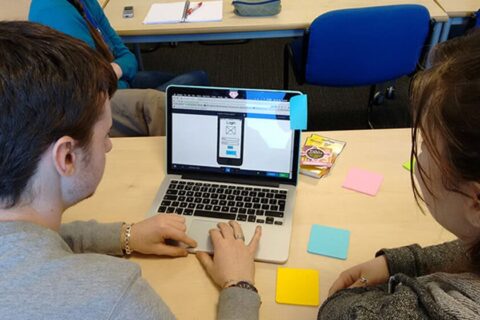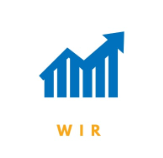Methodological material for adult educators practical training “Digital inclusion of vulnerable people through volunteering activities”
Methodological material for adult educators practical training (English version you can read below or download)
LAST VERSION2.Methodoly for Practical training
Polish version you can read below or download
Empowering adult educators to work effectively with migrants involves a combination of cultural understanding, sensitivity, and practical strategies. Here are recommendations to help adult educators create a supportive and enriching learning environment for migrants:
- Cultural Awareness and Sensitivity:
- Educate yourself about the cultures, backgrounds, and experiences of the migrant populations you’ll be working with.
- Avoid making assumptions or stereotypes about migrants’ experiences and perspectives.
- Language Support:
- Provide language learning opportunities that focus on practical communication skills relevant to daily life, work, and integration.
- Incorporate multilingual resources and materials to accommodate diverse language needs.
- Contextualized Learning:
- Make learning relevant by addressing migrants’ specific goals, needs, and challenges in their new environment.
- Integrate topics related to local customs, laws, and resources to help migrants navigate their new surroundings.
- Cultural Exchange:
- Foster a safe space for sharing cultural experiences and perspectives. Encourage migrants to share their traditions and stories, promoting mutual understanding.
- Trauma-Informed Approach:
- Be aware that migrants may have experienced trauma or stress due to displacement. Adopt a trauma-informed approach that emphasizes safety, trust, and empowerment.
- Community Building:
- Facilitate group activities and discussions that encourage social interaction and connections among migrants. This can help combat isolation and build a support network.
- Practical Life Skills:
- Teach essential skills for daily life, such as using public transportation, accessing healthcare, and understanding local regulations.
- Employment Preparation:
- Offer guidance on job search strategies, resume writing, interview skills, and understanding workplace culture in the new country.
- Digital Literacy:
- Provide training in basic digital skills, as digital literacy is crucial for accessing information, services, and job opportunities.
- Tailored Instruction:
- Recognize that migrants may have diverse educational backgrounds and learning preferences. Adjust your teaching methods to accommodate these differences.
- Partnerships and Resources:
- Collaborate with community organizations, language centers, and integration programs to access additional resources and support services for migrants.
- Counseling and Support:
- Connect migrants to counseling services or support groups if they are dealing with emotional or psychological challenges related to migration.
- Advocacy and Awareness:
- Use your role to advocate for policies and practices that support the integration and well-being of migrants in the community.
- Feedback and Evaluation:
- Regularly gather feedback from migrants to assess the effectiveness of your teaching methods and to make necessary adjustments.
- Continuous Learning:
- Stay updated on migration policies, cultural trends, and best practices in adult education. Attend workshops, conferences, and training programs.
Empowering adult educators to work with migrants involves a commitment to inclusivity, flexibility, and continuous improvement. By creating a welcoming and supportive learning environment, educators can help migrants successfully integrate into their new communities and achieve their personal and professional goals.




